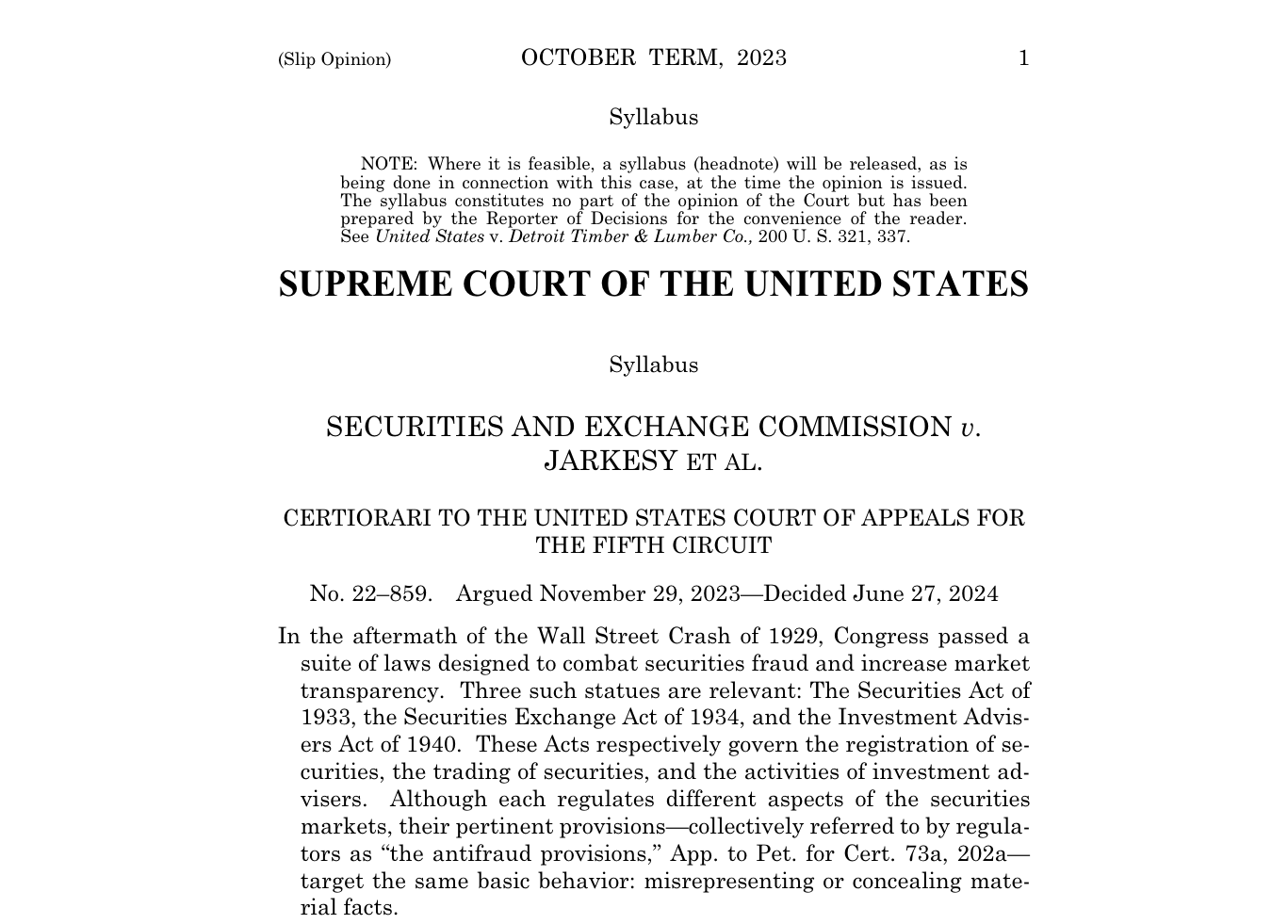The US Supreme Court has limited the Securities and Exchange Commission’s (SEC) authority in enforcing securities laws. In a 6-3 decision, the court determined that the SEC’s use of in-house judges to adjudicate cases violates the constitutional right to a trial by jury.
This case is one of several on the docket involving conservative and business-led challenges to the power of federal agencies. The court’s 6-3 conservative majority has often been sympathetic to such arguments.
The challenge specifically targeted how the SEC enforces securities laws, including prohibitions on insider trading.

Traditionally, the SEC has used in-house proceedings overseen by administrative law judges, but it can also pursue cases in federal court, seeking financial penalties in both venues.
Hedge fund manager challenges SEC
The dispute started with hedge fund manager George Jarkesy, who was accused by the SEC of breaking securities laws by lying and hiding important information from investors while managing two hedge funds.
The SEC’s in-house judges fined Jarkesy and his firm $300,000 and ordered them to return nearly $685,000 of what the SEC called “illicit gains.” Jarkesy was also banned from certain roles in the securities industry.
Jarkesy argued that the SEC’s in-house process was unfair and violated his rights. His fight against the SEC got support from billionaires Elon Musk and Mark Cuban.

The New Orleans-based 5th Circuit U.S. Court of Appeals ruled against the SEC, prompting the agency to ask the Supreme Court to step in.
The Supreme Court decided that people accused of fraud by the SEC now have the right to a jury trial in federal court. Chief Justice John Roberts, speaking for the court’s conservative majority, said:
“A defendant facing a fraud suit has the right to be tried by a jury of his peers before a neutral adjudicator.”
This means the SEC can no longer use in-house judges for these cases. Justice Sonia Sotomayor disagreed with the decision. She said it would be celebrated by those wanting to dismantle the administrative state.
Joined by Justices Ketanji Brown Jackson and Elena Kagan, Sotomayor argued that many federal agencies rely on in-house proceedings to impose civil penalties. She wrote:
“For those and countless other agencies, all the majority can say is tough luck; get a new statute from Congress.”
What this means for crypto industry
Crypto companies facing SEC enforcement actions will now have the right to a jury trial in federal court, rather than being subject to the SEC’s in-house administrative proceedings.
This change could level the playing field for crypto firms, as they will no longer be subject to the biased internal SEC process. The SEC may need to recalibrate its enforcement strategies, potentially leading to delays in bringing actions against crypto companies.

High-profile cases against companies like Ripple, Binance, and Coinbase may be affected, potentially requiring reassessment or transfer to federal courts.
The federal judges may apply stricter standards when reviewing SEC enforcement actions, potentially leading to more dismissals or favorable rulings for crypto companies.
Earlier today, Cryptopolitan reported that Coinbase has sued the SEC and the FDIC for treating the cryptocurrency industry unfairly.
For years, the SEC has been hostile in its treatment of crypto companies. Coinbase and the others have just been given more ammo in the fight.
Jai Hamid





